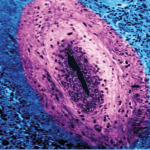Sessions at the 2019 ACR/ARP Annual Meeting, Nov. 8–13 in Atlanta, will include less didactic learning formats—fewer lectures from lecterns and more conversation-style talks. This year’s Meet the Professor Workshops and courses are no exception. Their topics are cutting edge, with seating arrangements that will spark dialogue and ample time for the experts in their fields to answer questions.
“These sessions purposely have limited enrollment to control how many learners are in the room, so each person can get what they need,” says Rebecca Manno, MD, MHS, assistant professor of medicine at Johns Hopkins University, Baltimore, and assistant director of the Johns Hopkins Vasculitis Center. Dr. Manno also chaired the subcommittee that planned the sessions.
These sessions require an additional registration fee. Meet the Professor courses are $50 for members and $75 for non-members. Workshops are $100 for members and $150 for non-members.
Workshops feature practical, hands-on training in procedural skills using specialized equipment, or animal and silicon models. Meet the Professor sessions are designed for deep-dive discussions with experts.
“We encourage attendees to bring their cases or images. They will walk away from these sessions with the solutions to their questions,” says Dr. Manno.
The Expert Viewpoints
Rheumatologists who see an increase in patients referred with immunotherapy-associated arthritis symptoms will benefit by attending Checkpoint Inhibitors, a Meet the Professor course.
“Checkpoint inhibitors are being used to treat an ever-expanding list of cancers. Whether you work in an academic center or in private practice, you are likely to see patients experience immune-related adverse events from these powerful medications, including checkpoint inhibitor-associated arthritis,” says the speaker, Anne R. Bass, MD, rheumatology fellowship program director at the Hospital for Special Surgery, New York.
Patients’ symptoms may mimic rheumatoid arthritis and respond to steroids and tumor necrosis factor inhibitors. “However,” she says, “treatment has to balance arthritis control with maintaining the checkpoint inhibitor’s anti-cancer effect. Identifying the safest disease-modifying anti-rheumatic drugs and biologics to use in this setting is a research priority.”
Another Meet the Professor session, Imaging of Large-Vessel Vasculitis, will be led by Peter Grayson, MD, MSc, head of the Vasculitis Translational Research Program at the National Institute of Arthritis and Musculoskeletal and Skin Diseases. He will discuss how to image these vessels and interpret the results.
“Dr. Grayson will share his own stockpile of images. He is a true leader of this field,” says Dr. Manno. “As rheumatologists, we’re so limited in diagnostic tools for large-vessel vasculitis, and imaging is it, because we cannot biopsy the aorta. This discussion will explore the foundation of how we manage these diseases.”
